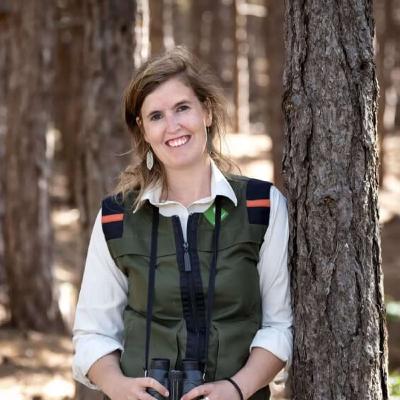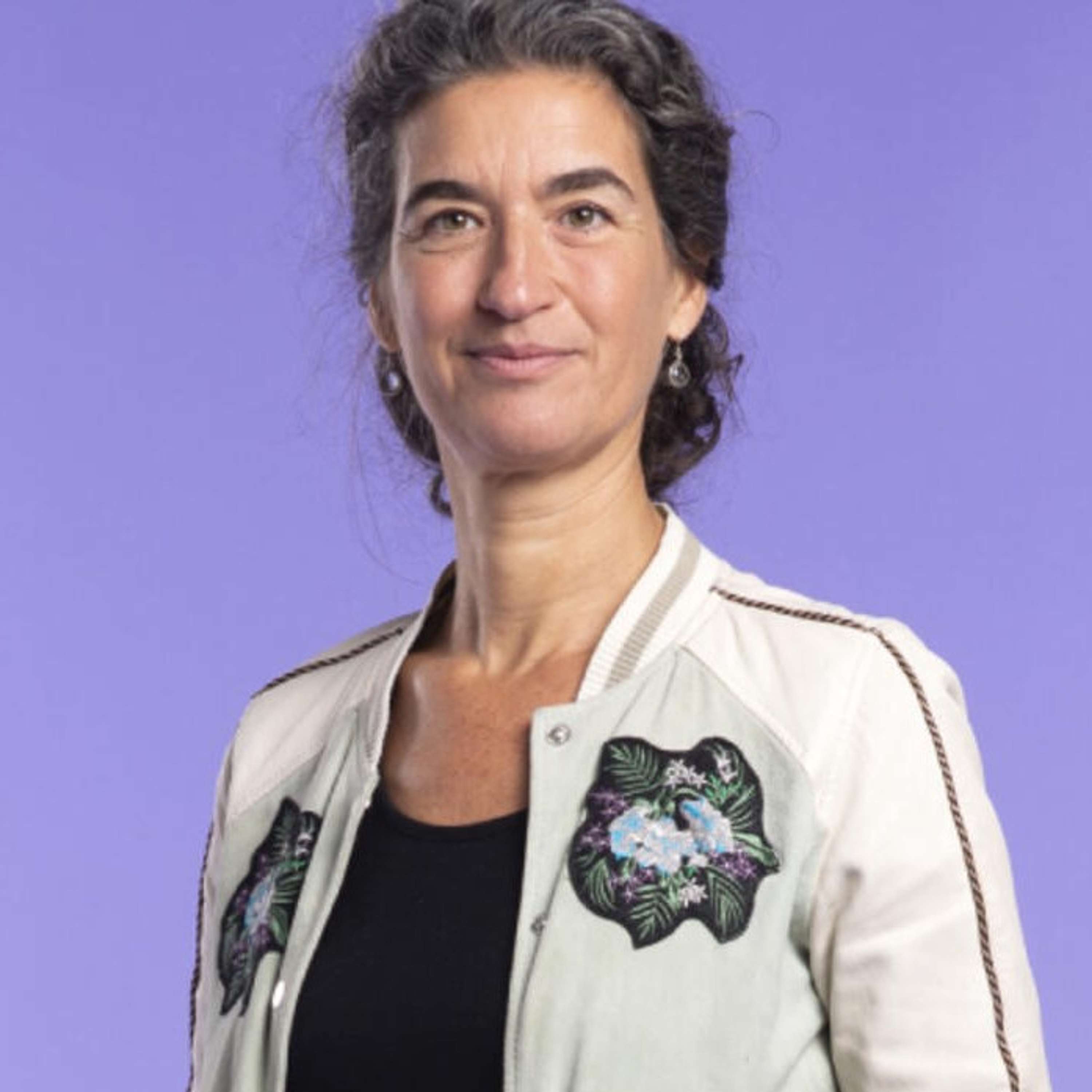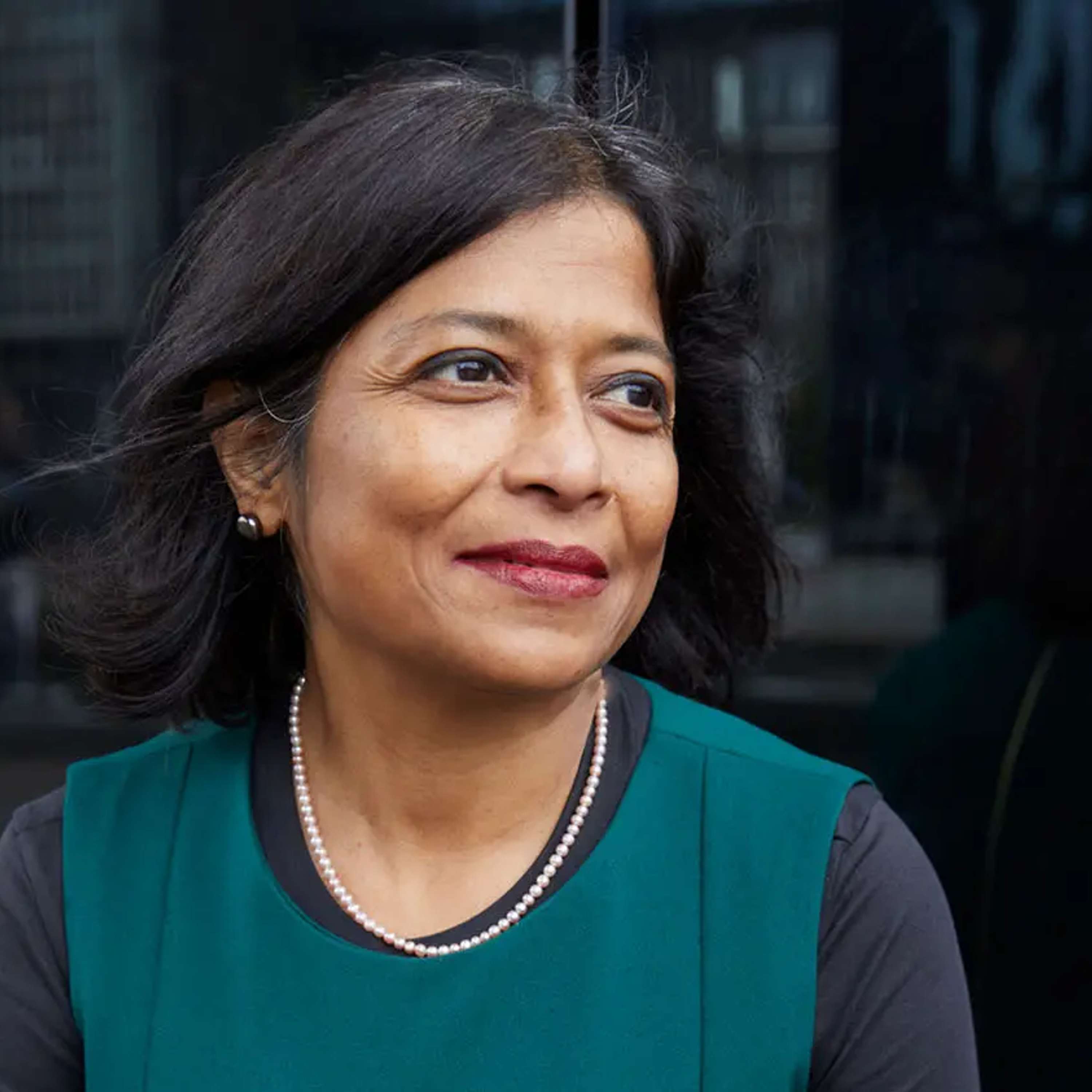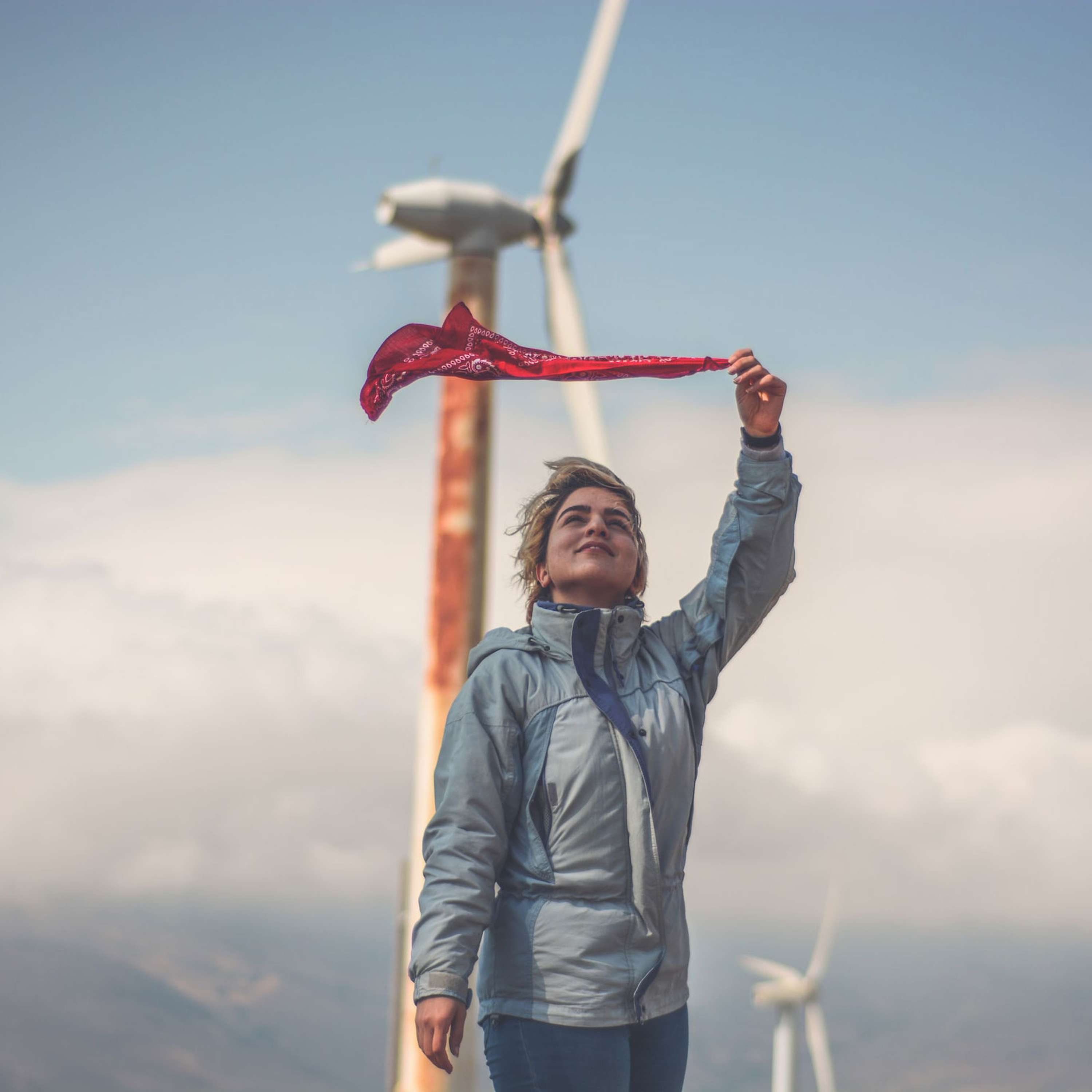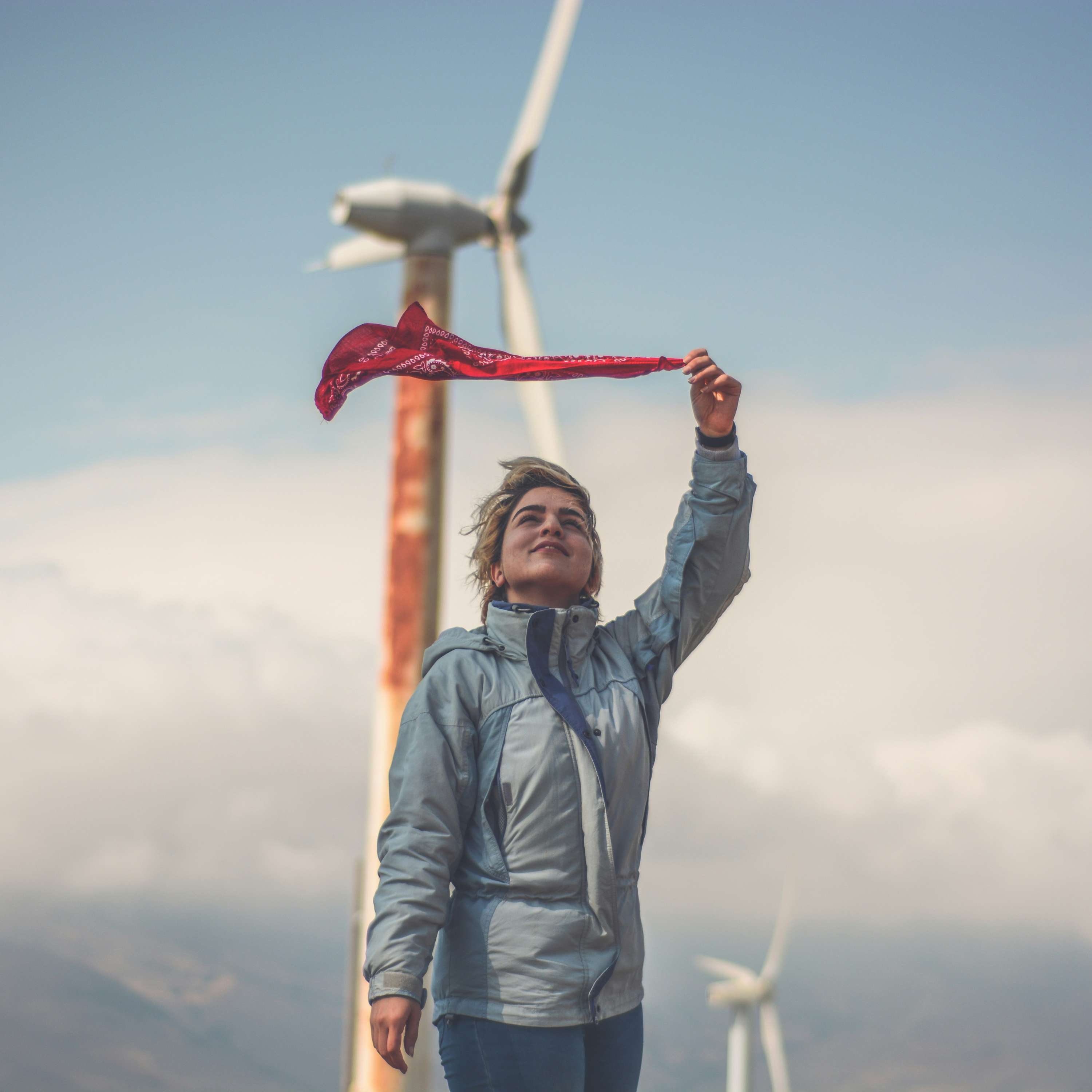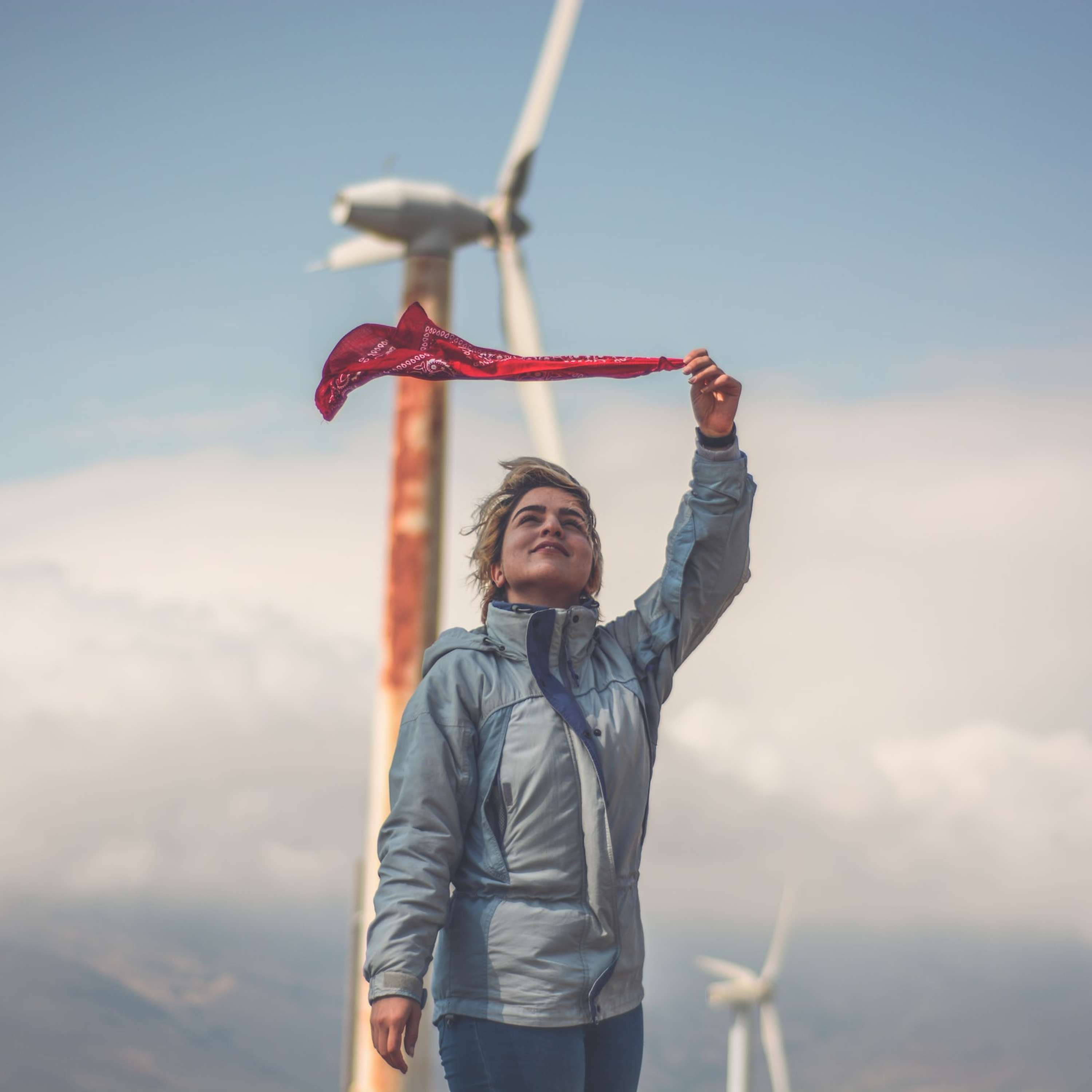Discover The DRIFT Transitions Podcast
The DRIFT Transitions Podcast

The DRIFT Transitions Podcast
Author: DRIFT
Subscribed: 1Played: 4Subscribe
Share
©Erasmus University Rotterdam
Description
How is it that societies can plot the same course for years and years and then suddenly change at lightning speed? And why do sustainable innovations seem to pop up everywhere, while so few of them truly break through?
To understand this, perhaps a new perspective on fundamental change can help. If we want to grasp how our society can truly transform, we must look at it through the lens of transition thinking.
In this show, Wouter Mulders and a rotating cast of colleagues speak to a number of theoretical and practical experts about transition science. Because by understanding transitions toward sustainability and justice, we can also accelerate them—or at least, that’s what we hope.
The DRIFT Transitions Podcast is produced by DRIFT, the Dutch Research Institute for Transitions, part of Erasmus University Rotterdam in the Netherlands.
To understand this, perhaps a new perspective on fundamental change can help. If we want to grasp how our society can truly transform, we must look at it through the lens of transition thinking.
In this show, Wouter Mulders and a rotating cast of colleagues speak to a number of theoretical and practical experts about transition science. Because by understanding transitions toward sustainability and justice, we can also accelerate them—or at least, that’s what we hope.
The DRIFT Transitions Podcast is produced by DRIFT, the Dutch Research Institute for Transitions, part of Erasmus University Rotterdam in the Netherlands.
7 Episodes
Reverse
In this first episode of The DRIFT Transitions Podcast, we're talking you through how to draw an X-curve: a simple model that explains why so few sustainable and just initiatives break through. And why societies can plot the same course for years and years and then suddenly change at lightning speed. Applying the x-curve helps explain how change really happens across the systems, society, and sectors you are part of.In ten minutes, this introductory episode explains how niche innovations—like mushroom snacks made from organic waste or biodiversity-boosting playgrounds—can struggle to challenge dominant structures, habits, and institutions.Whether you’re a policymaker, activist, entrepreneur, or just transition-curious, here's an accessible and compelling audio gateway into a world of ideas that could help us steer toward a more just and sustainable future. Join us as we chart the path towards different futures, one X-shaped map at a time. Ready to draw your way into transitions theory? Let’s begin.If you're keen to engage with accelerating transitions, or just want to know more about them, go to drift.eur.nl Thanks to: Audrey Wientjes for voice-over, Marius Kooij for editing & mixing, Walvisnest for music, Lieven Heeremans for all kinds of advice, and various DRIFT colleagues for support & inspiration.
For the first season of the DRIFT Transitions Podcast, we are republishing a number of English-language episodes on transition science and practice that we previously recorded for our Dutch-language channel.In this episode, we're taking a hike. Together with Mara de Pater, transitions researcher specializing in biodiversity, and Samuelle van Deutekom, forest ranger, we're walking through the Dunes of Schoorl. It's a coastal area an hour’s drive North of Amsterdam, and we think it’s a prime example of biodiversity restoration.We talk about soil and become familiar with the peculiar history of Schoorl's pine trees. We hear why relatively recent forest fires and unorthodox forest management are a blessing for the local biodiversity. And we discuss how so-called transitional zones elsewhere could relieve areas like Schoorl, and help us all in the biodiversity and climate crisis.This podcast was made possible by the BIONEXT project, which is co-funded by the European Union and UK Research and Innovation (UKRI) under the UK government’s Horizon Europe funding guarantee 10039588. For more information, go to bionext-project.euThanks to: Staatsbosbeheer & Samuelle van Deutekom for giving us their time and access to the area, Audrey Wientjes for voice-over, Paul Mahoney & Oppla for editing, Walvisnest for music, and all our DRIFT & BIONEXT colleagues for support and inspiration.
For the first season of the DRIFT Transitions Podcast, we are republishing a number of English-language episodes on transition science and practice that we previously recorded for our Dutch-language channel. What is it like to work on environmental and human rights issues from both ends, so from both the Global South (or majority world) and the Global North? And not to work *for* but *with* global organisations that are seeking justice, pointing out that those in power have to be more inclusive?In this episode from 2023, we sat down with Daniëlle Hirsch. Daniëlle has since become a member of the Dutch House of Representatives for the Dutch green party GroenLinks, but at the time of recording, she was a politican as well as director of Both ENDS. This Netherlands-based environmental and human rights organization devoted to funding, knowledge-sharing and policy work within a large global network of civil society actors.If Dutch pension funds invest in a Ugandan oil pipeline that spells tragedy for local communities and a liveable planet, Both ENDS connects Ugandan experiences with Dutch conversations. And Daniëlle also speaks of campaigning with indigenous leader and environmental activist Berta Cáceres against Dutch development bank FMO’s activities in Honduras. Sadly, Berta was killed.And though it may not be what researchers like to hear, Daniëlle doesn’t define justice as such in her work. Instead, she is fiercely devoted to the process. Do we organize processes to share power? Are enough ‘powerless’ voices included to ensure suffering stops? And why does the Netherlands have such a specific ‘do-gooder’ self-image on the global stage?Handy links:Both ENDS website: https://www.bothends.org/en/Guardian photo journalism on Uganda’s East Africa Oil Pipeline: https://www.theguardian.com/global-development/gallery/2023/feb/24/counting-the-cost-of-ugandas-east-africa-oil-pipelineSlain Honduran activist’s daughter seeks criminal probe (Al Jazeera): https://www.aljazeera.com/economy/2022/7/18/slain-honduran-activists-daughter-seeks-criminal-probeFor more transition know-how and how-to, please go to https://drift.eur.nl Thanks to: Audrey Wientjes for voice-over, Marius Kooij for editing, Igno Notermans for producing, Walvisnest for music, Lieven Heeremans for all sorts of advice and all our DRIFT colleagues for support and inspiration.
Who is responsible for the climate crisis? And how safe is it actually for everyone when we keep within established planetary boundaries?For the first season of the DRIFT Transitions Podcast, we are republishing a number of English-language episodes on transition science and practice that we previously recorded for our Dutch-language channel. Wouter Mulders and Neha Mungekar are very honoured to get to wrap up this season by discussing such questions with Joyeeta Gupta. She is a professor of Environment and Development in the Global South at the University of Amsterdam and a 2023 winner of the Spinoza Prize, which is like the Dutch Nobel Prize for science.We talk about the novels of Perry Mason being an early inspiration, about how she managed to make climate law interesting for a diverse group of students and about the relation between gender, wealth distribution and climate action.And Joyeeta wonders: how do we get to a storyline of more global equality? And why is it normal for engineers and pharmaceutical scientists to set standards and make recommendations, but not for climate scholars?Handy links:‘Prestigious Spinoza Prize for UvA professor Joyeeta Gupta’: https://www.uva.nl/en/content/news/news/2023/06/prestigious-spinoza-prize-for-uva-professor-joyeeta-gupta.html‘Earth System Boundaries must include justice’: https://www.uva.nl/en/shared-content/faculteiten/en/faculteit-der-maatschappij-en-gedragswetenschappen/news/2023/03/how-to-include-earth-system-justice-within-earth-system-boundaries.htmlThe nine planetary boundaries: https://www.stockholmresilience.org/research/planetary-boundaries/the-nine-planetary-boundaries.htmlFor more transition know-how and how-to, please go to https://drift.eur.nl/ Thanks to: Audrey Wientjes for voice-over, Marius Kooij for editing, Igno Notermans for producing, Walvisnest for music, Lieven Heeremans for all sorts of advice and all our DRIFT colleagues for support and inspiration.
This is ‘Whoosh’, a three-part audio series on listening to different voices in the wind energy transition. ‘Whoosh’ is produced by DRIFT as part of the JustWind4All project. In these three episodes, colleagues Wouter Mulders and Stéphanie van der Raad are trying to shift perspectives by listening to sounds that they believe deserve to be better heard when it comes to offshore wind energy development. — In the first episode of ‘Whoosh’, Wouter and Stéphanie accept the challenge to dig into different perspectives in the wind energy transition. So what better place to go than the eastern part of Kent in the UK? Quite near, but far away enough from where we live to fire up our senses, and with plenty of offshore wind energy turbines in sight to start a conversation. We hear positive sounds about offshore wind energy in the towns of Herne Bay and speak to kitesurfer Morgan who is, no pun intended, a big fan of wind. We also get in touch with Stanislas from the Pooled fund on International Energy who puts our UK impressions in a larger, European context. He strongly believes that considering social and environmental dimenions when developing new wind energy projects isn’t a detriment to the success of new projects as is sometimes claimed, but actually an amplifier. And says it would be foolish not to take justice aspects into account. — These episodes are part of the free training module ‘Leadership in Transitions’ , but we think they’re a great listen on their own as well. You can find more info on justwind4all.eu. Special thanks to: speakers Morgan McNamara and Stanislas d'Herbemont, Marius Kooij for editing and music, Audrey Wientjes for voice-over, Igno Notermans for feedback and support and Julia Wittmayer as well as the entire JustWind4All project team for making this possible
This is ‘Whoosh’, a three-part audio series on listening to different voices in the wind energy transition. ‘Whoosh’ is produced by DRIFT as part of the JustWind4All project. In these three episodes, colleagues Wouter Mulders and Stéphanie van der Raad are trying to shift perspectives by listening to sounds that they believe deserve to be better heard when it comes to offshore wind energy development. — In the second episode of ‘Whoosh’, Wouter and Stéphanie continue their journey into the complexities of the wind energy transition — this time, from the perspective of those who share the skies and seas. What happens when the drive for clean energy collides with fragile ecosystems?They speak with Samuel Wrobel from the Royal Society for the Protection of Birds, who shares how offshore wind farms are reshaping marine habitats and affecting seabird populations, with 10 out of 25 species already on the red list. From avoidant birds rerouting their migration paths to the seabed forming an artificial reef on wind turbines, there are many unseen consequences. They talk to Cristina Madrid López from the University of Barcelona who approaches the wind transition from a systems perspective. As a modeller, she traces the entire life of a wind turbine — from construction to decommissioning — and looks at how to design better indicators that don’t just focus on energy output. — These episodes are part of the free training module ‘Leadership in Transitions’, but we think they’re a great listen on their own as well. You can find more info on justwind4all.eu. Special thanks to: speakers Samuel Wrobel and Cristina Madrid López, Theo Jansen for interview and inspiration, Marius Kooij for editing and music, Derk Loorbach and Audrey Wientjes for voice-over, Igno Notermans for feedback and support and Julia Wittmayer as well as the entire JustWind4All project team for making this possible.
*heads-up: somewhere in this episode you may experience something strange in the audio. But don't worry, it's all part of the plan*In the final episode of 'Whoosh', we're ripping off a band-aid. What if, despite the opportunity to make renewable energy and ecology go hand in hand, there is a clash? What does it look, sound and feel like when offshore wind energy development is at odds with nature conservation? And what can help balanced decision-making when economy, carbon accounting and the true value of nature meet?To experience this, we ended up not far away from where we started this podcast series, in Pegwell Bay in the UK. Here we're speaking to head ranger Louis Grover, who is joined by Nina Jones, who works for the Kent Wildlife trust. We discuss the pressures on the local park and reserve, their efforts to halt the installation of offshore wind energy infrastructure and the thinking behind this Rethink Sealink campaign.And then, our podcast takes a strange sonic turn. We can't tell you too much beforehand, but it certainly provides food for thought when it comes to listening to underrepresented voices in transitions.---This is ‘Whoosh’, a three-part audio series on listening to different voices in the wind energy transition. ‘Whoosh’ is produced by DRIFT as part of the JustWind4All project. Special thanks to: speakers Louis Grover and Nina Jones, Marius Kooij for editing and music, Sheng-Wen Lo for his thoughts, artistry and enthusiasm, Audrey Wientjes for voice-over, Igno Notermans for feedback and support and Julia Wittmayer as well as the entire JustWind4All project team for making this possible.

